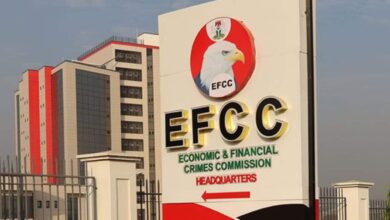Ghana enacts Legislative Instrument to mandate Competitive Bidding for Power Generation

The government has introduced a Legislative Instrument (LI) that mandates the procurement of power generation through competitive bidding, as part of the energy sector reforms.
The Energy Commission (Planning and Competitive Procurement of Additional Electricity Generation Capacity) Regulations, 2025. L.I. 2508 represents a major policy shift aimed at enhancing transparency.
The new policy framework is also expected to foster innovation, reduce costs, and create an attractive environment for investment, as Ghana works toward a resilient and sustainable energy future.
The LI is a milestone in line with President John Dramani Mahama’s vision to deliver affordable electricity tariffs to spur industrial growth and economic transformation, a statement from the Energy Ministry issued in Accra yesterday, copied the Ghanaian Times said.
Currently, power generation accounts for approximately 65 per cent of the total cost in Ghana’s electricity value chain and the introduction of competitive procurement is intended to address this imbalance by driving down costs, improving efficiency, and ultimately delivering better value to consumers.
“This reform marks a new era for Ghana’s power sector. Competitive bidding will not only ensure value for money, but also unlock innovation and greater private sector participation,” the Minister of Energy and Green Transition, John Abdulai Jinapor, said in the statement.
The LI outlines a comprehensive framework to guide future power generation procurement. Its core objectives include, enhancing transparency in the energy sector, promoting cost-effectiveness and affordability, attracting a diverse mix of technologies and investors.
It also seeks to ensure predictable and streamlined procurement processes, effective implementation, while steps are being taken to strengthen the capacity of regulatory institutions.
This includes improving the vetting of license applications and maintaining a comprehensive, up-to-date Power Purchase Agreement (PPA) register, enhancing transparency and oversight.
The Ministry is, therefore, working closely with international partners, including the World Bank, the African Development Bank, and the Energy for Growth Hub, to standardise Power Purchase Agreements (PPAs), Build local capacity in PPA design and negotiation, ensure fair and balanced returns for investors, deliver high-quality electricity at competitive prices.
The collaboration aims to make Ghana’s power sector more bankable, efficient, and aligned with global best practices—while ensuring long-term sustainability and consumer protection.
With the passage of this LI, Ghana positions itself as a regional leader in energy sector reform, demonstrating a strong commitment to transparent governance, fiscal discipline, and inclusive growth in the power industry.
BY TIMES REPORTER
🌍 Trusted News. Real Stories. Anytime, Anywhere.
✅ Join our WhatsApp Channel now! https://whatsapp.com/channel/0029VbAjG7g3gvWajUAEX12Q






